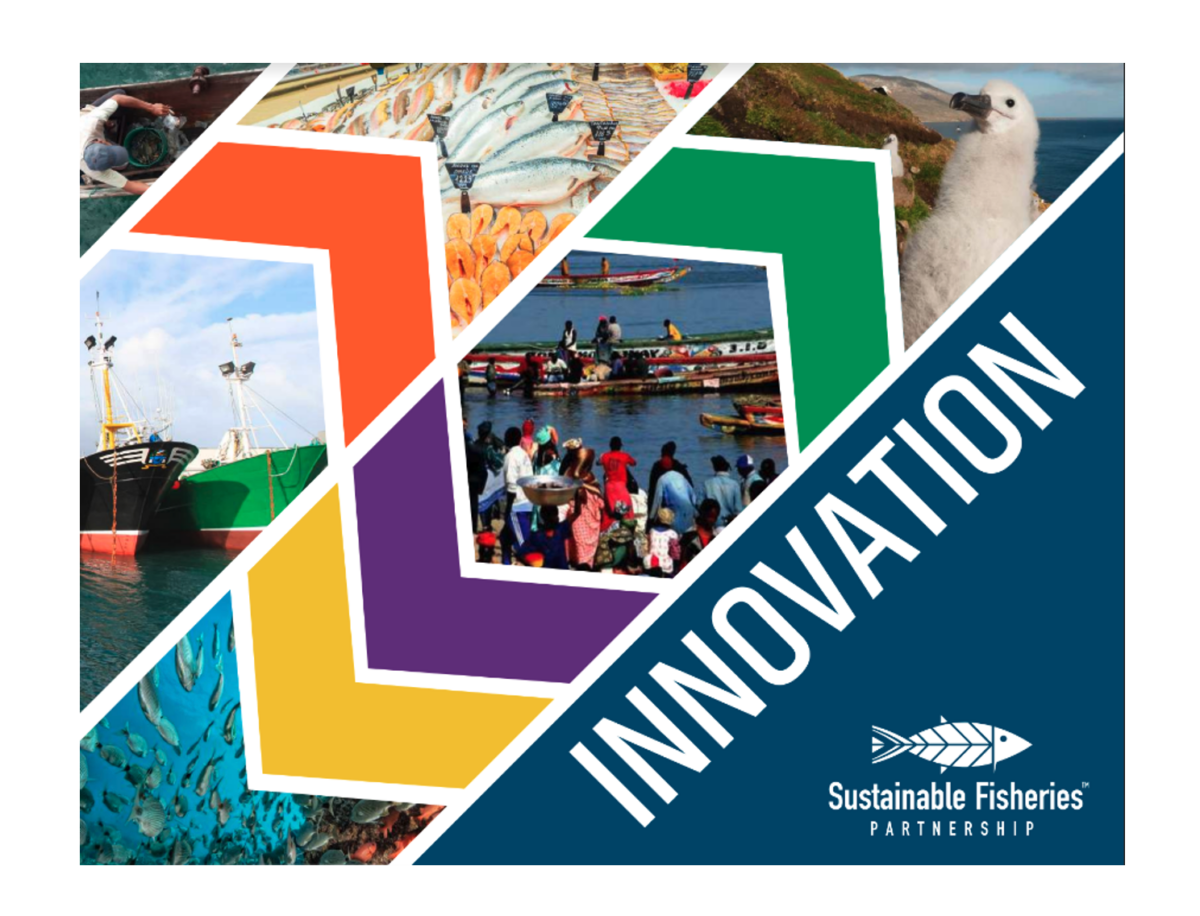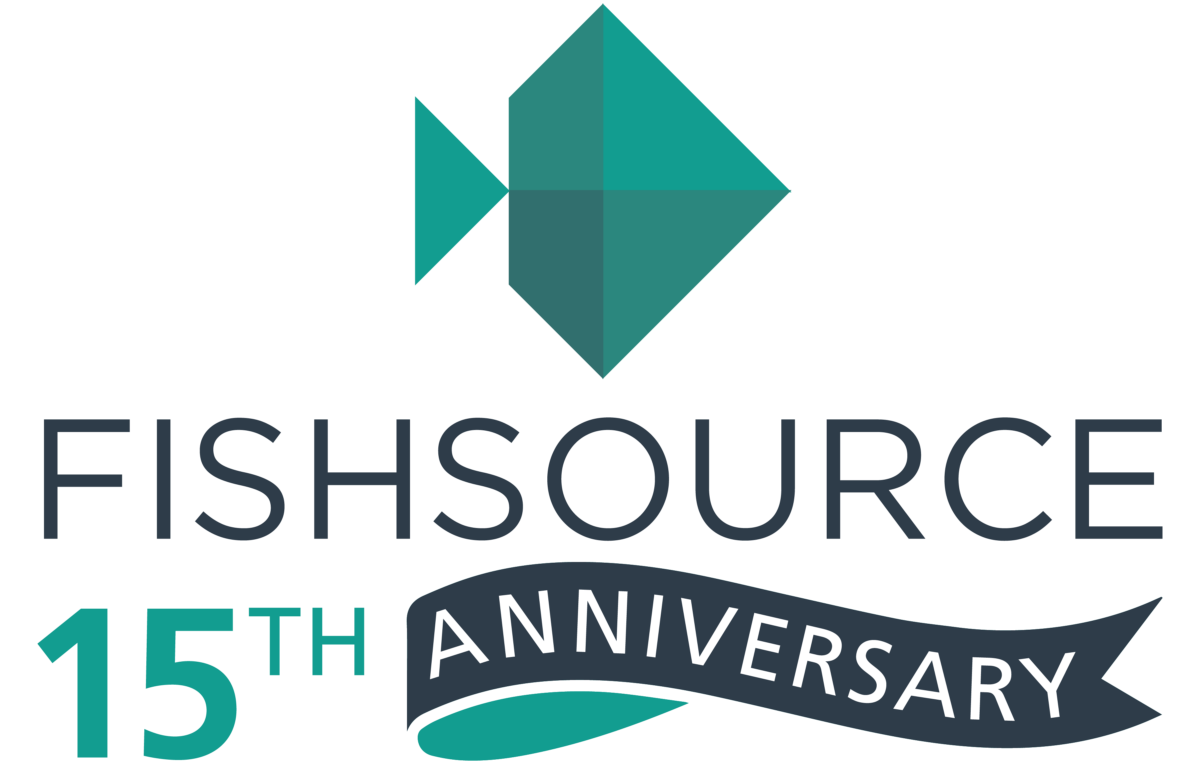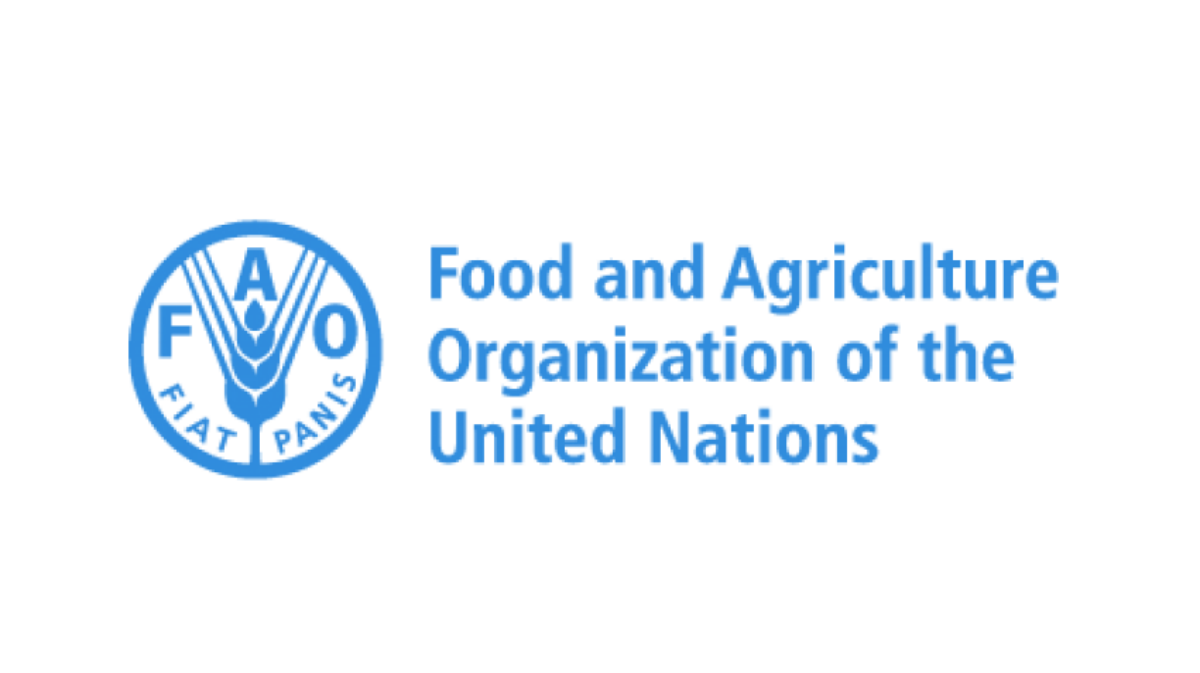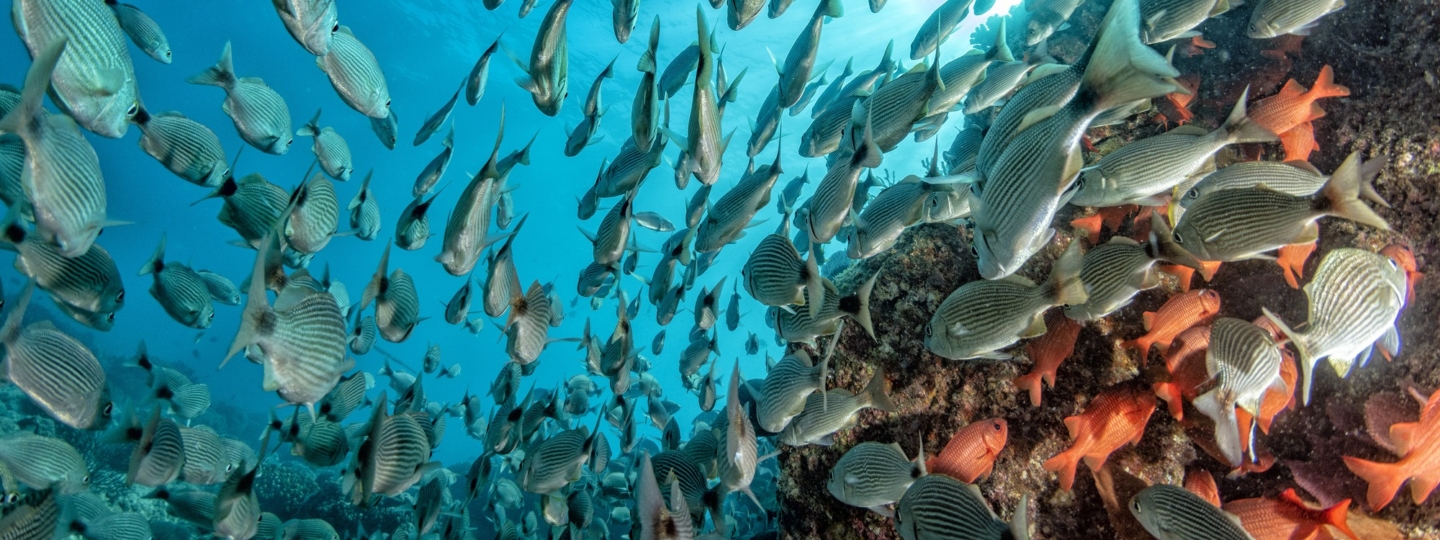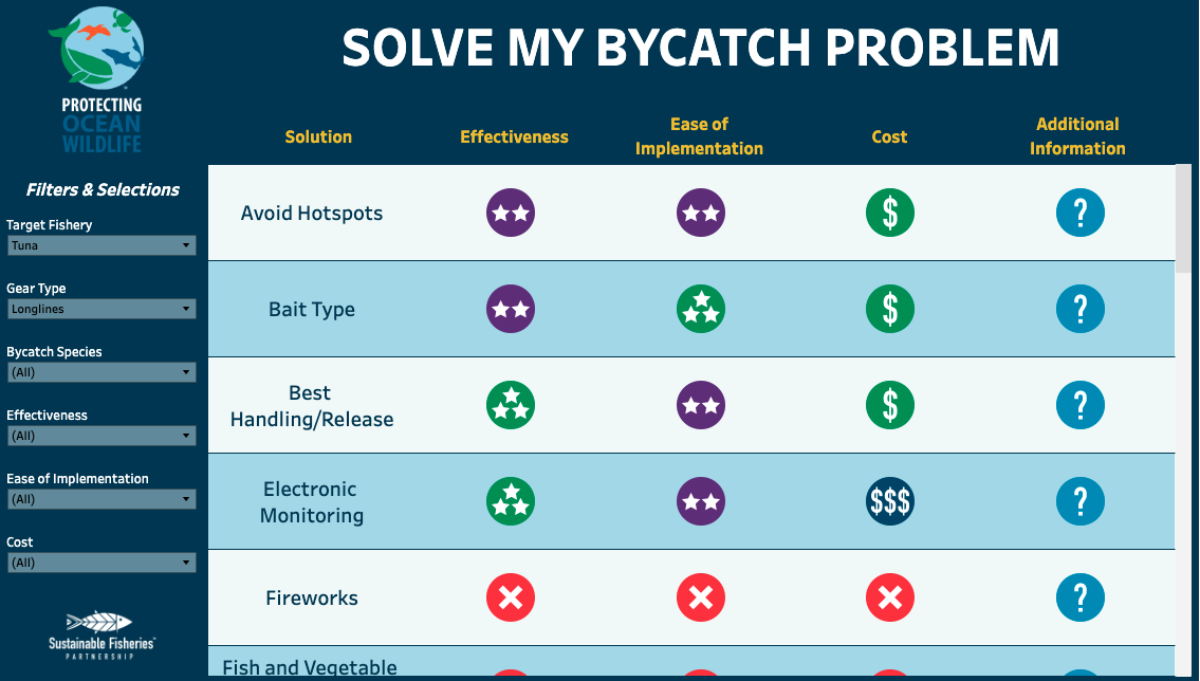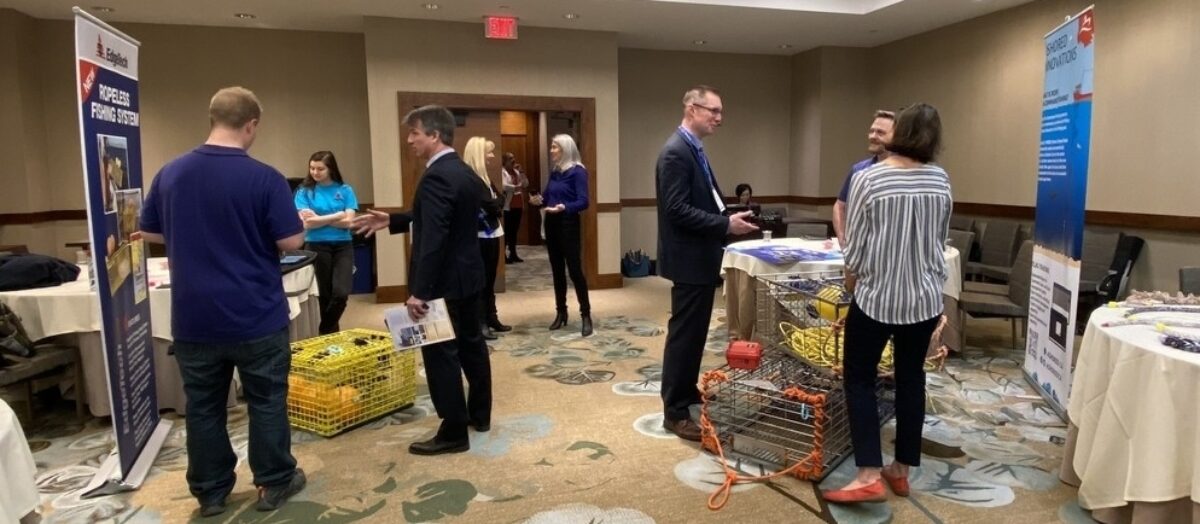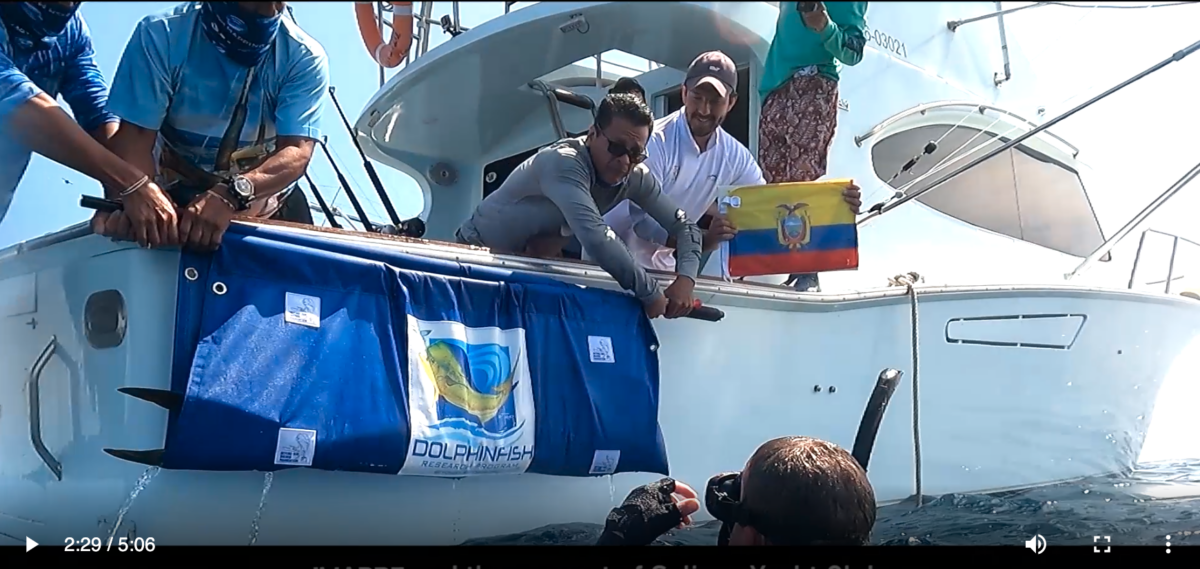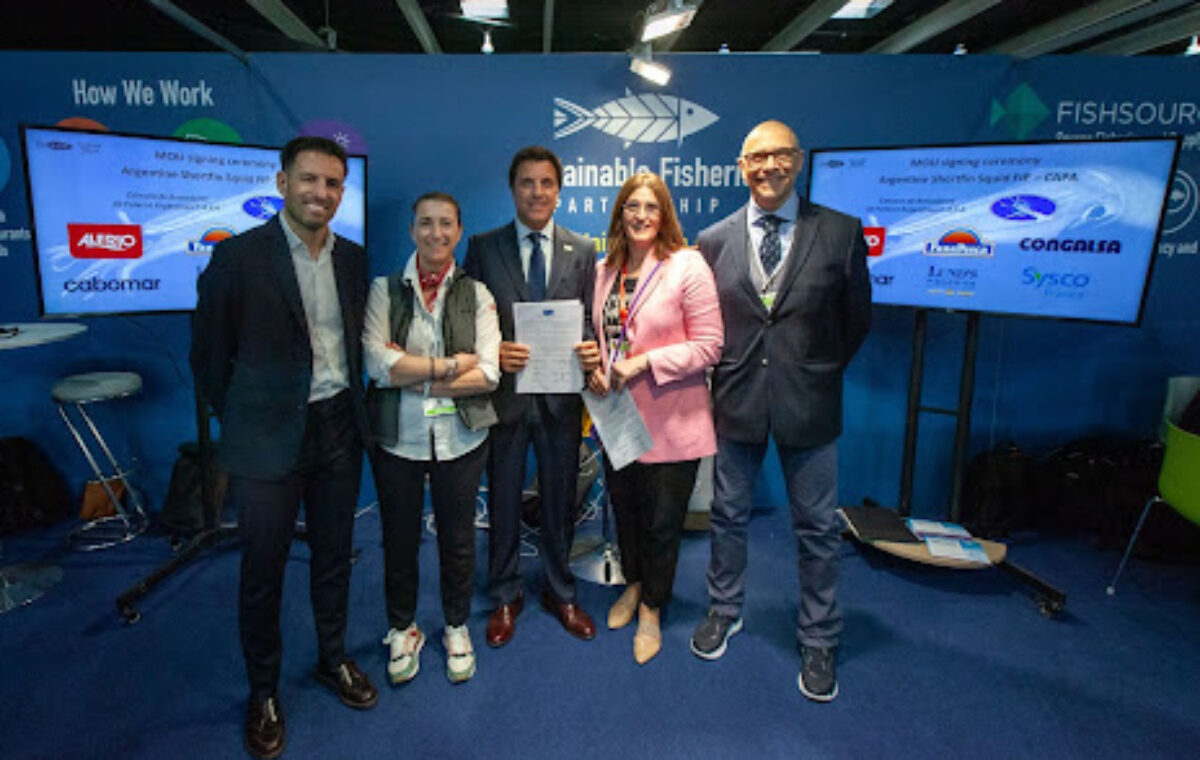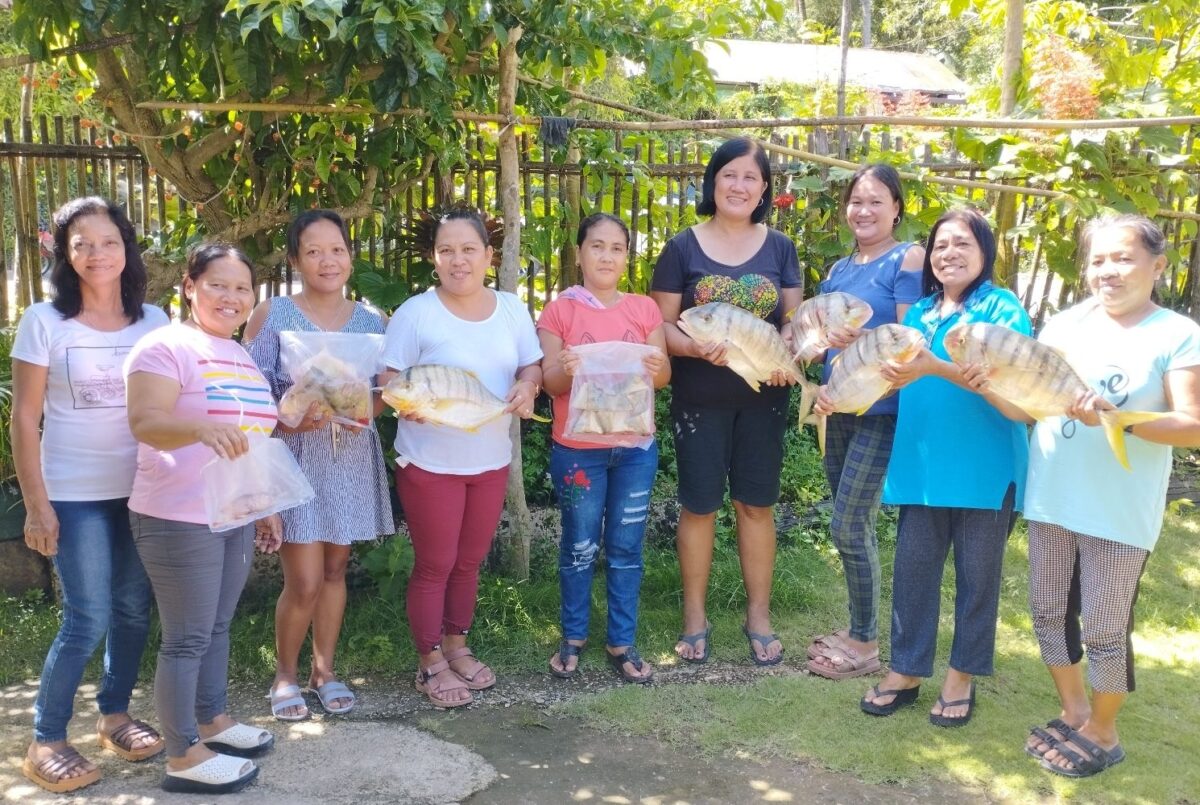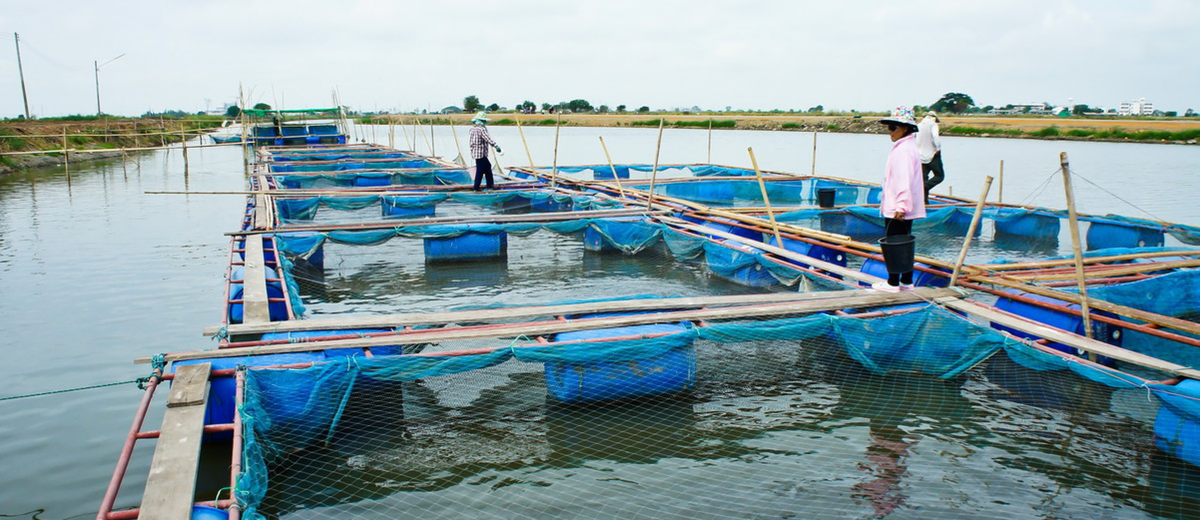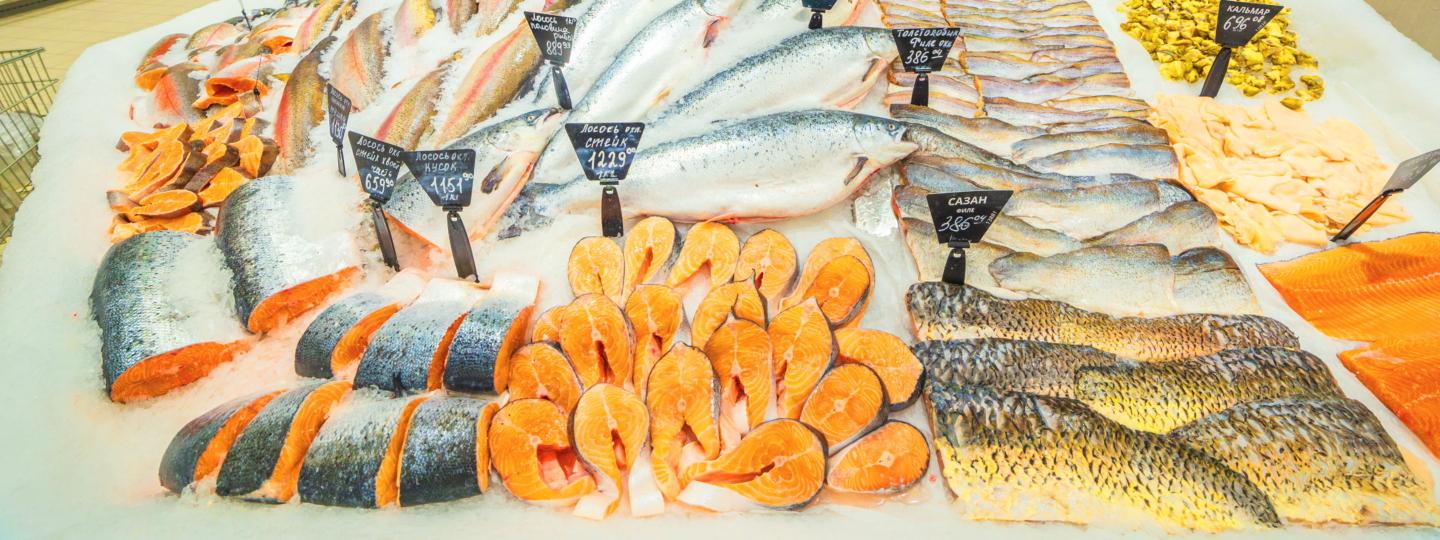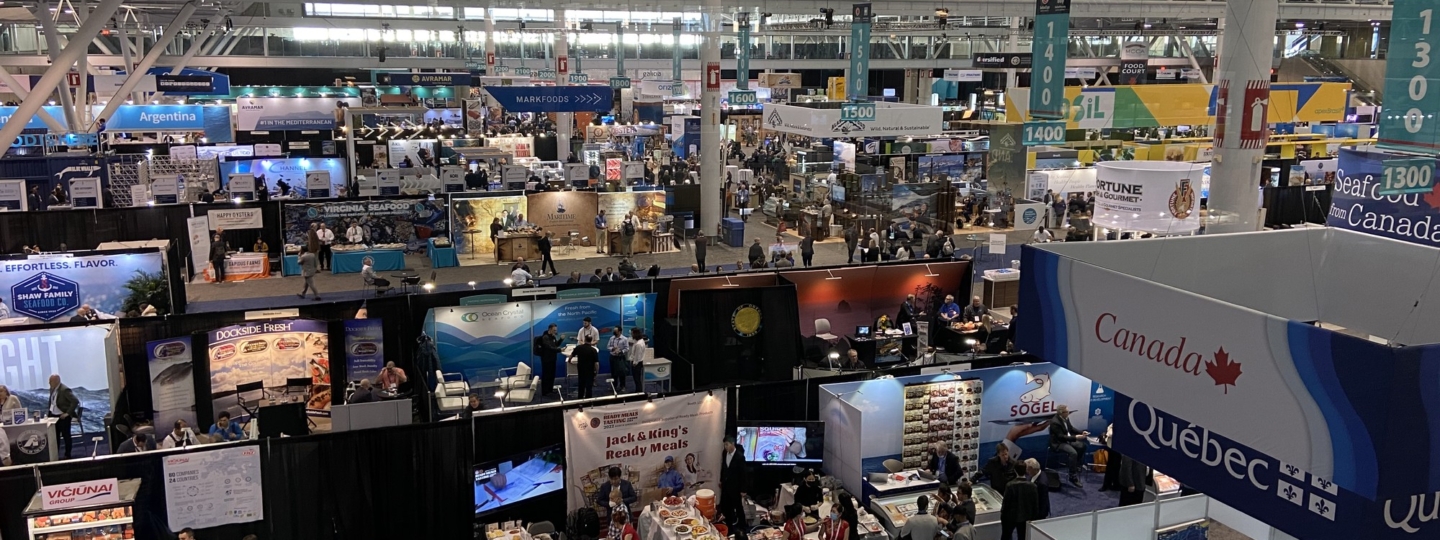Year in Review
Highlights from 2022
Celebrating a culture of innovation at SFP
The new publication from SFP highlights our history of innovation in the sustainable seafood sector, from how we work with the seafood industry to the science, data, and information tools we created to support our goal of a world where the oceans are healthy and 100 percent of seafood is produced sustainably. This document also serves as our 2021-22 annual report.
FishSource turns 15 and begins collaboration with UN FAO
2022 was the 15th anniversary of the development of FishSource, SFP’s one-of-a-kind online resource that helps users identify, understand, and assess source fish stocks and fisheries. The year brought exciting developments and recognition of FishSource’s value and achievements:
- The UN Food and Agriculture Organization (FAO) announced that it is adopting the standards used in FishSource to establish unique, standardized IDs for all of the world’s major fisheries. The universal FAO IDs will be publicly available and will standardize data collection and identification of fisheries and stocks among industry, governments, NGOs, and other stakeholders.
- In recognition of these efforts on universal fishery IDs, SFP was named an ocean innovator by the United Nations Development Programme (UNDP), which will support pilot projects to test the use of the fishery IDs in two different supply chains, a small-scale fishery in the Philippines and an industrial fishery in Namibia
- FishSource was also highlighted in “How tech is being used to keep fisheries in line,” a story in the Financial Times about using technology to improve transparency and traceability in seafood supply chains.
Protecting Ocean Wildlife
At Seafood Expo North America in Boston, we hosted a Bycatch Solutions Open House to highlight the latest gear innovations and bycatch solutions for addressing fisheries interactions with endangered, threatened, and protected species.
We unveiled our new Solve My Bycatch Problem tool, an online interactive tool to evaluate methods to reduce wildlife bycatch in tuna longline fisheries.
We also worked with Birdlife International and Whale and Dolphin Conservation to complete bycatch audits of the risks to ocean wildlife in the fisheries that supply seafood to our partners Co-op, Tesco, and Publix.
Supporting Small-Scale Fishers
We worked with the Dolphinfish Research Program, artisanal fishers, and research institutions in Peru and Ecuador on a pilot tagging project that targeted mahi-mahi in the Eastern Pacific Ocean, to increase scientific understanding about the mahi population in the region.
The Indonesian Blue Swimming Crab (BSC) Fishers Communication Forum (Forkom Nelangsa) released a video on how fishers can get out of debt. The forum, which was created with the support of SFP, provides a mechanism for BSC fishers in Indonesia to share information and participate in decision making.
Improving Fisheries Management
We are supporting the creation of Better Seafood Philippines (BSP), building on the USAID Fish Right program. BSP uses market influence to support small-scale fishers and combat illegal, unreported, and unregulated (IUU) fishing by promoting transparent and sustainable seafood production and sourcing at all levels of the Philippines seafood supply chain.
We supported the development of a new fishery improvement project (FIP) for Argentine shortfin squid, one of the largest squid fisheries in the world. The FIP is led by CAPA (the Argentine Chamber of Jigger Fishing Vessels Shipowners) and was developed with the support of six international squid buyers, all members of SFP’s Global Squid Supply Chain Roundtable.
Promoting Sustainable Aquaculture
New research from SFP’s aquaculture team shows that landscape-level aquaculture management can contribute to the conservation and regeneration of mangrove forests, helping preserve the wealth of ecosystem services that mangroves provide and presenting a huge opportunity for the farmed shrimp industry to help bring back lost mangrove habitat.
SFP and the Asian Farmed Shrimp Supply Chain Roundtable (SR) presented a three-part webinar series on aquaculture improvement projects (AIPs), sharing knowledge and lessons from a decade of developing and implementing AIPs as a way to increase supply chain security and climate change resilience, and support small-scale farmers.
Supply Chain Roundtables and Innovation
“Crossing the Chasm,” a four-part Seafood Source series features interviews with key SR players about how they are pushing for wider adoption of sustainable practices in the global seafood industry.
Supply Chain Roundtables bring industry together for sustainability
Our Supply Chain Roundtables (SRs) continued to actively advocate for change in 2022:
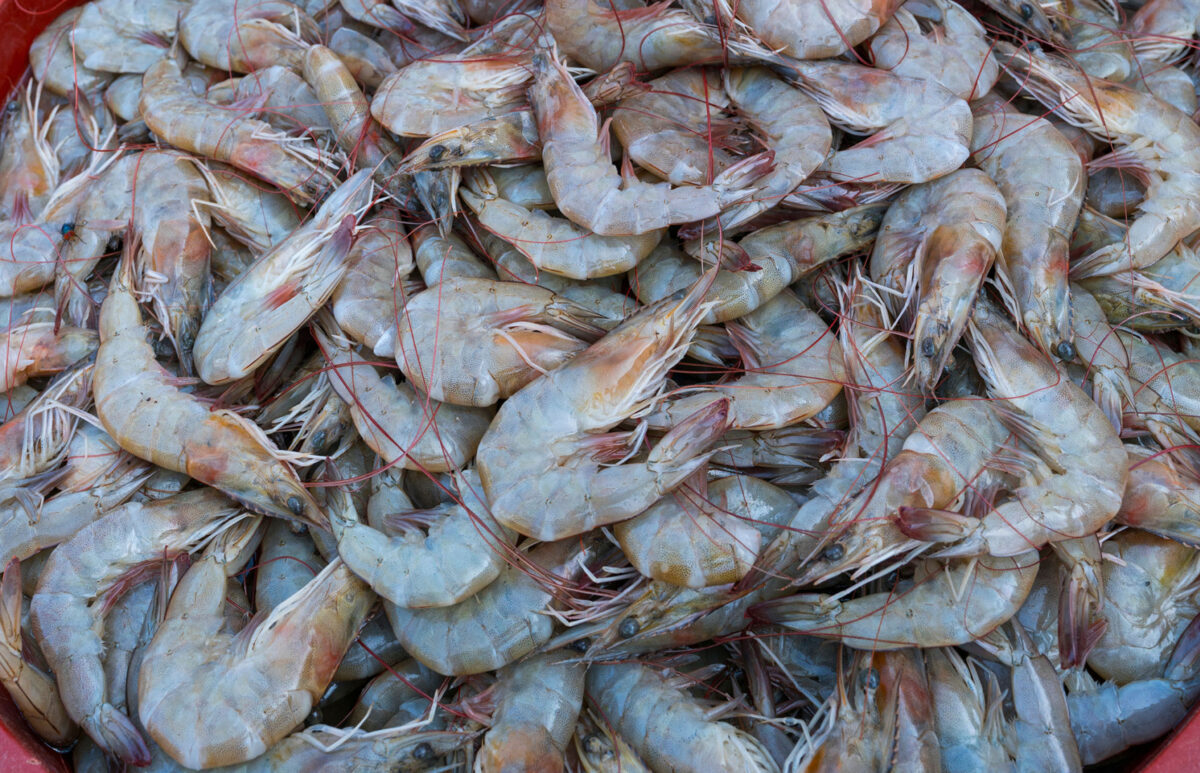
Five members of the Mexican Shrimp SR completed audits for the 2021-22 Pacific shrimp season, according to the requirements of SR membership. The audits focus on improving compliance with existing regulation through the implementation of control documents for US importers of Mexican Pacific wild shrimp, and are one of the most stringent within the industry.
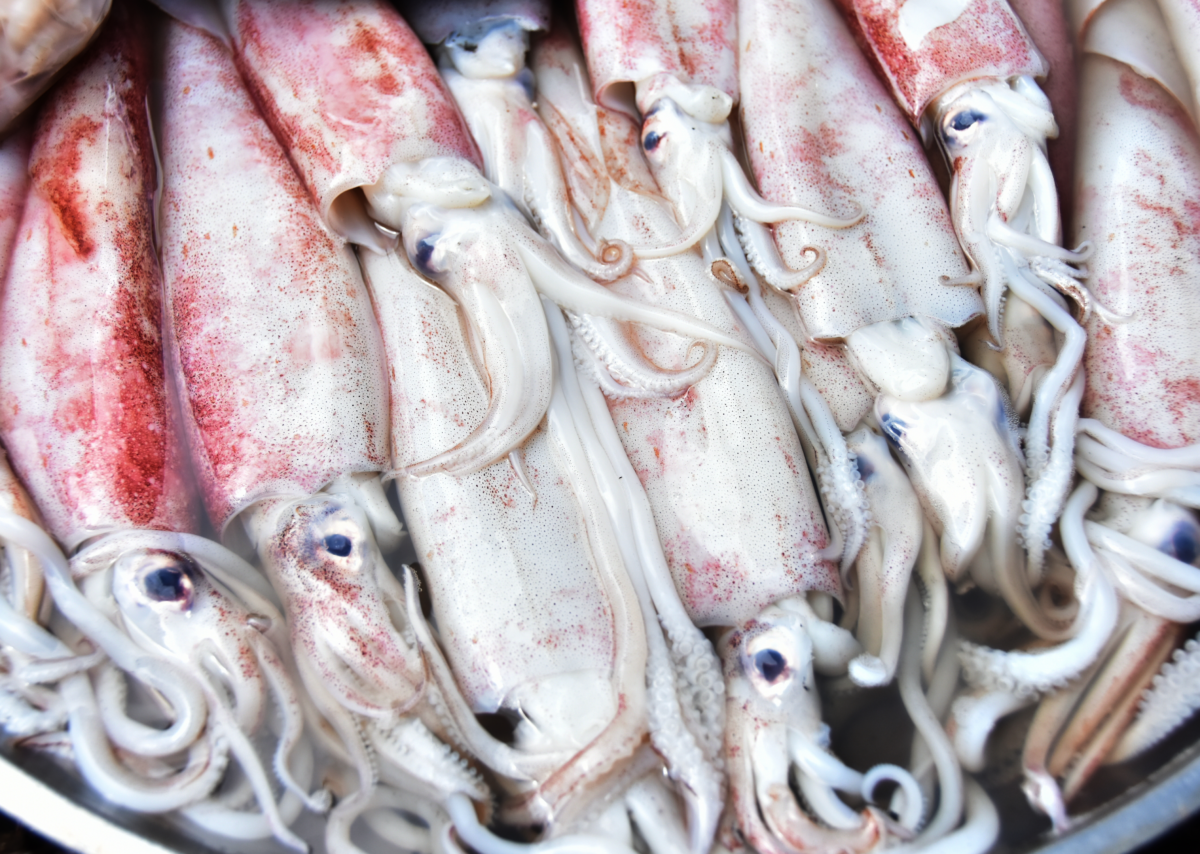
A group of 16 squid buyers and importers from North America and Europe, all members of SFP’s Global Squid Supply Chain Roundtable (SR), are working together as the Squid IUU Prevention Group to drive improvements in squid fisheries and eliminate illegal, unreported, and unregulated (IUU) squid fishing.
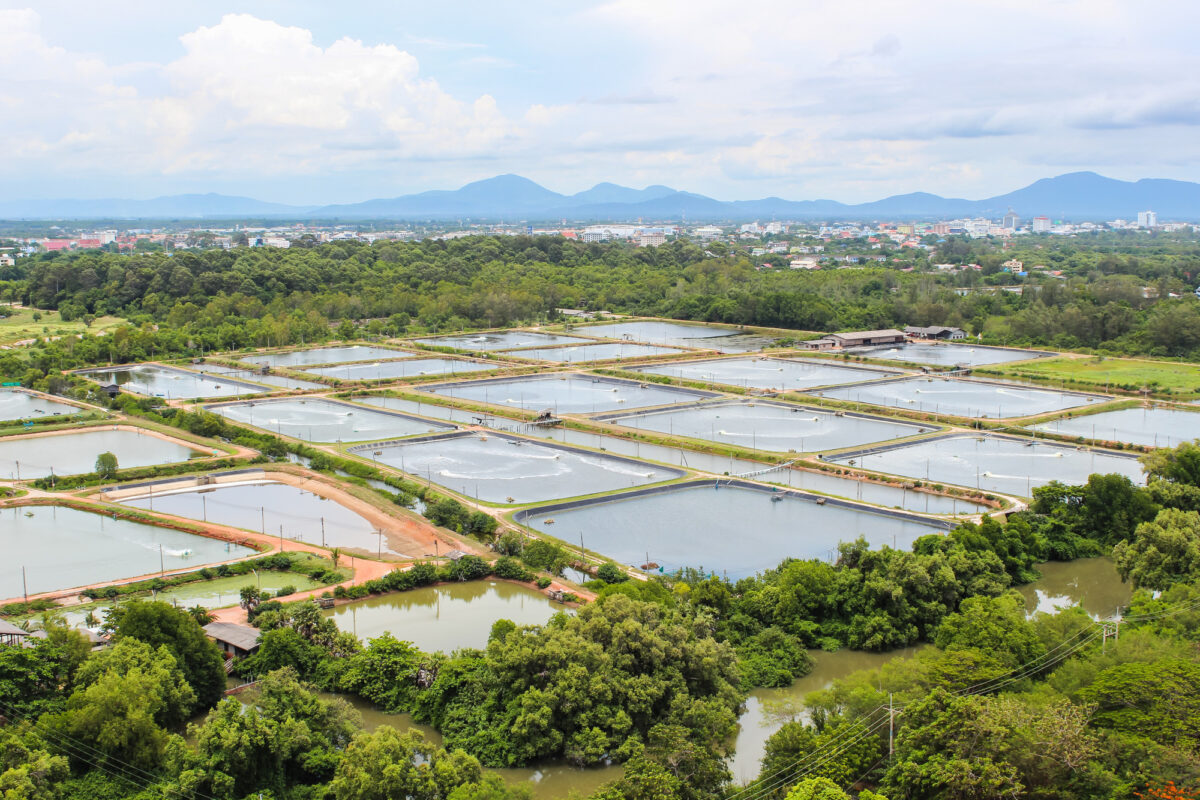
We launched a revamped Asian Farmed Shrimp SR this year with a new logo, new participants, and a new mandate to support the uptake of aquaculture improvement projects (AIPs) throughout the aquaculture sector. The participants are now contributing financially to the running of the SR and development of a roadmap for activity.
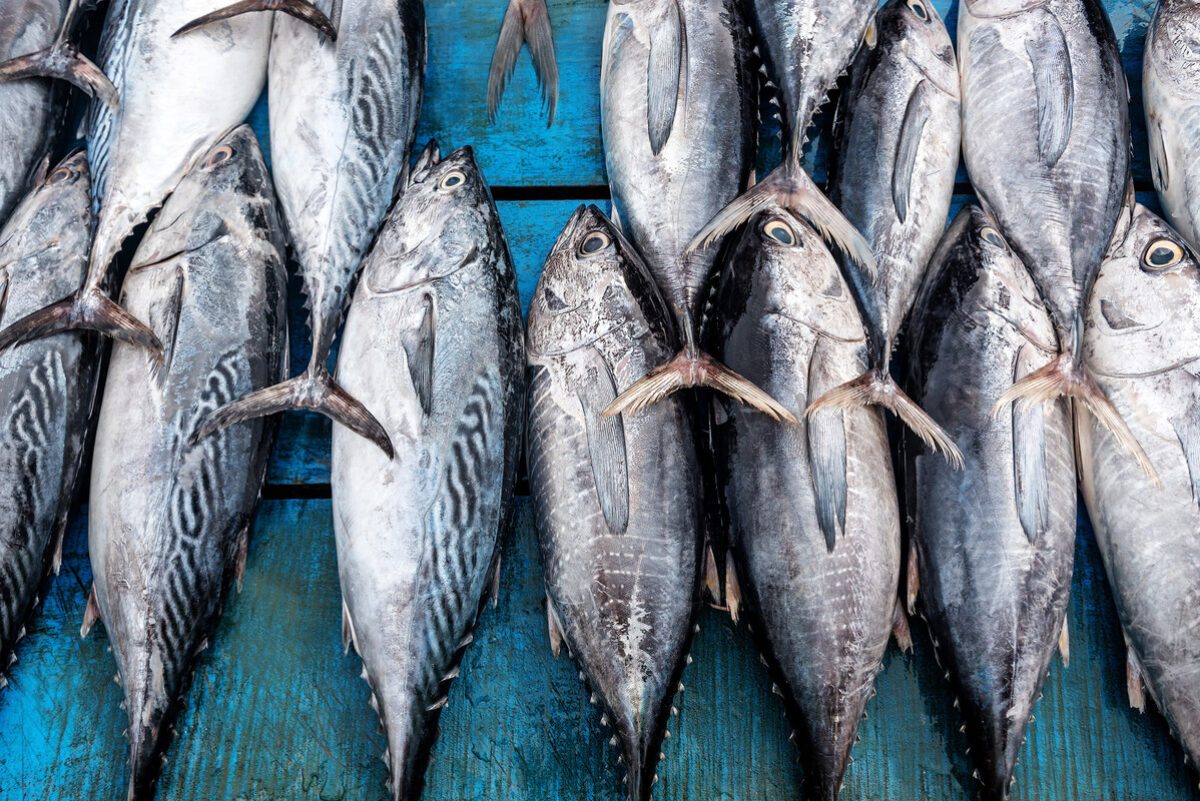
We phased out our Global Longline Tuna SR this year, as part of a new collaboration between SFP and the Global Tuna Alliance. Through this agreement, 14 companies from the SR joined the GTA, which will take the lead on supporting industry with advocacy-related work with regional fisheries management organizations (RFMOs), while SFP focuses on working with companies to reduce the bycatch of endangered, threatened, and protected (ETP) species in tuna fisheries.
SFP science and research support seafood sustainability
SFP has always been grounded in science-based research and solutions. In 2022, we continued to expand the science on seafood sustainability.
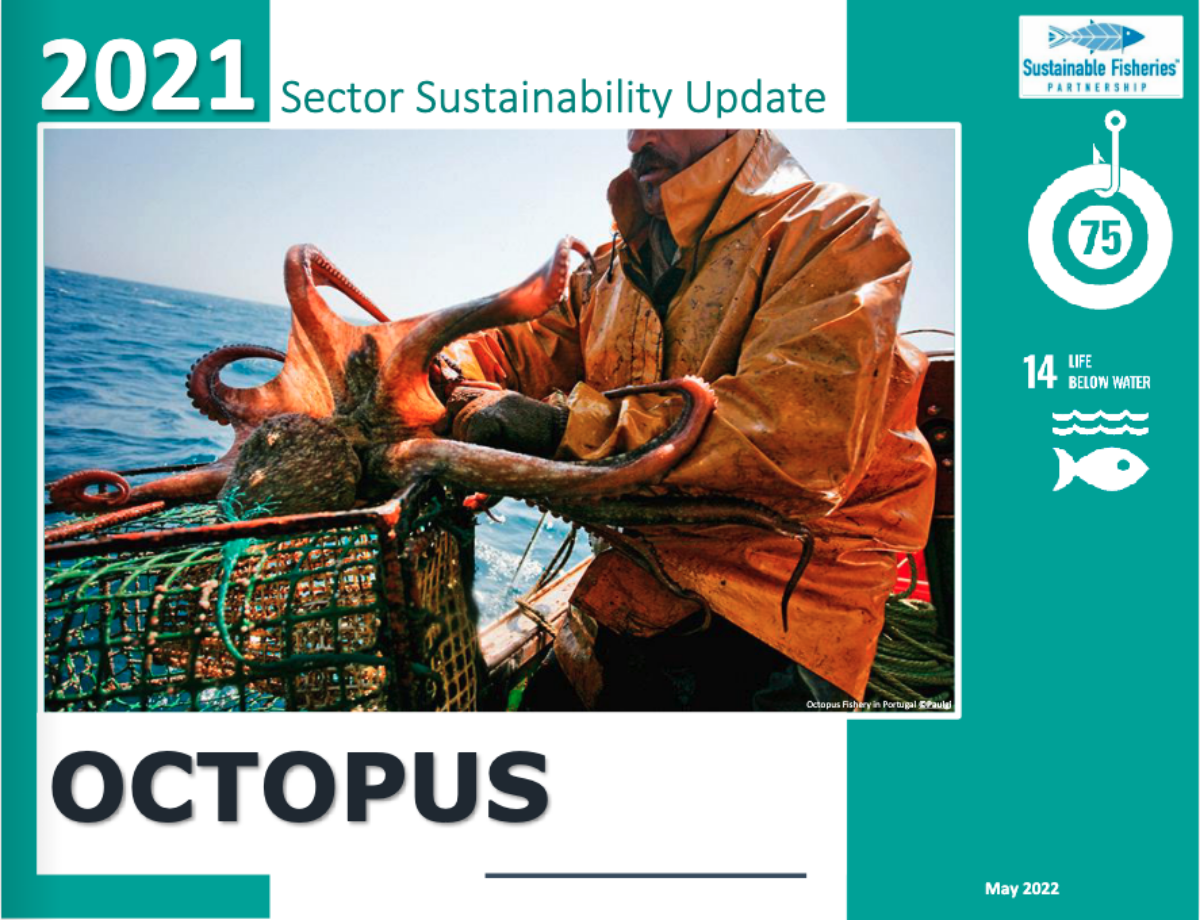
We released a revised set of our annual Sector Sustainability Updates, summarizing progress so far in each Target 75 sector against the 75-percent sustainable goal, along with highlights on the most recent trends in production and trade and additional sustainability challenges.
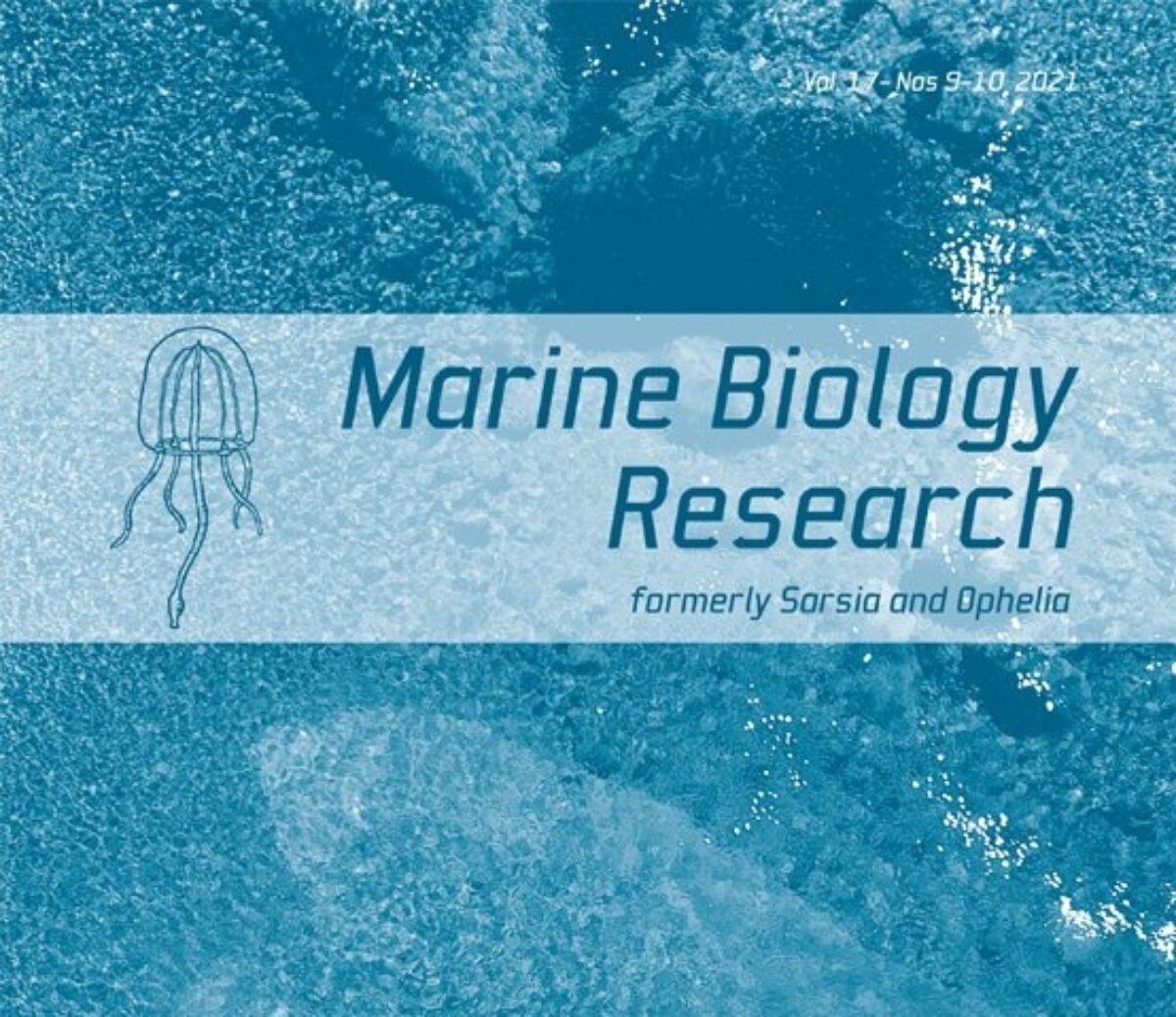
Our Science Team published a study in the journal Marine Biology Research, finding that fishery improvement projects need to improve their workplans to better address bycatch of endangered, threatened, and protected (ETP) species.
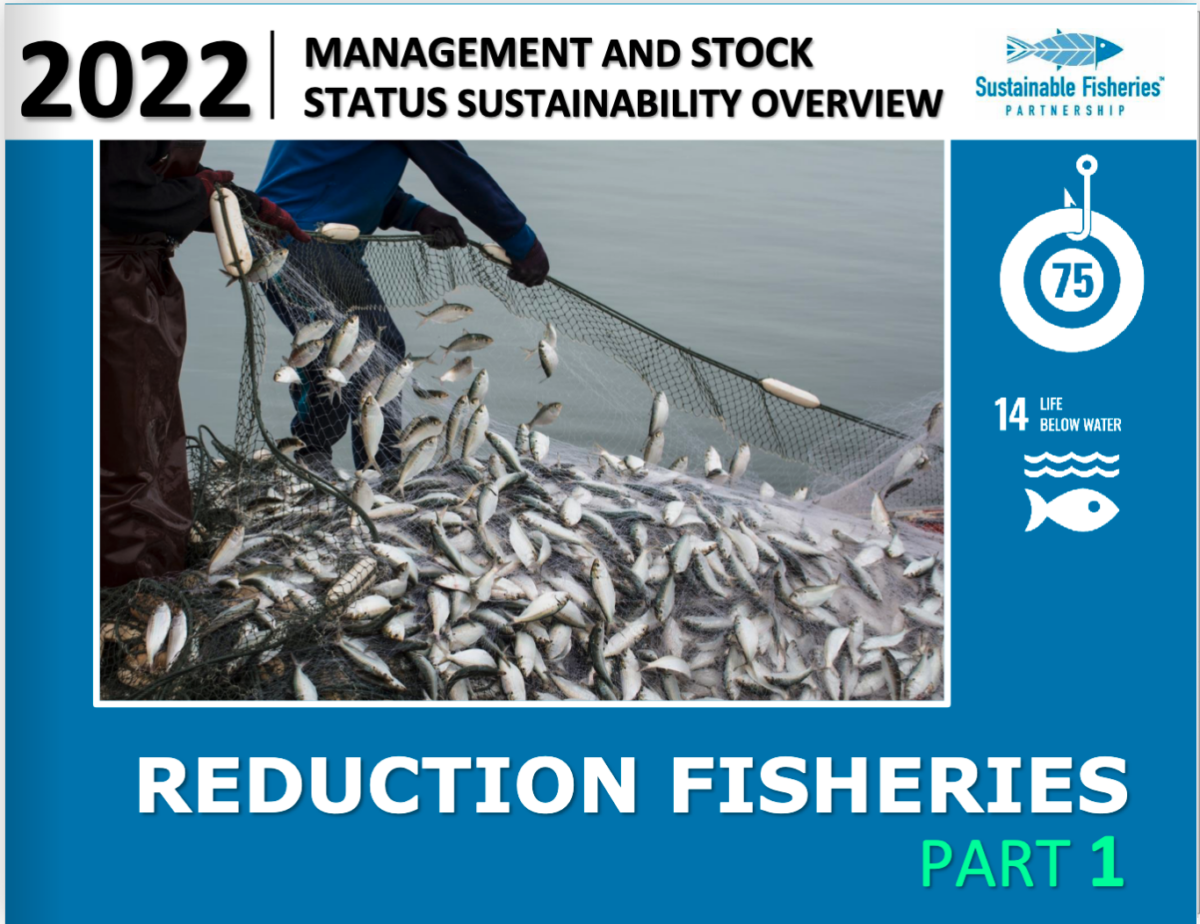
The 13th edition of our sustainability overview of reduction fisheries showed that, although most of the evaluated fisheries have maintained their management and stock status performance and continue to be reasonably well-managed, overall sustainability performance in the sector continues to decrease, with more fisheries dropping into the poorly managed category.
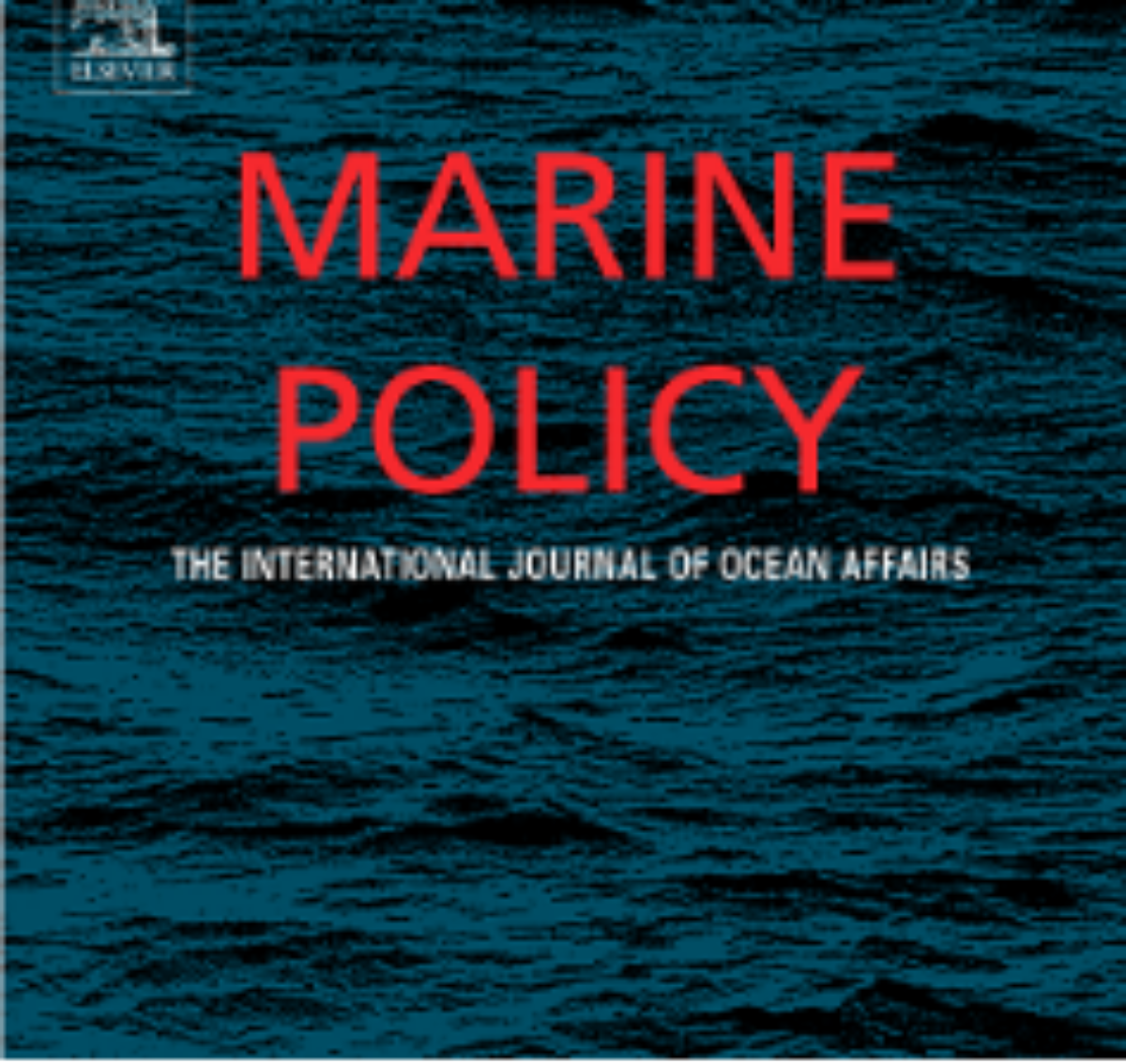
Our Fisheries Team published a paper in the journal Marine Policy on the economics of jumbo flying squid (JFS) fisheries, showing that a lack of formal recognition of Peruvian artisanal squid fishers leads to a reduction in benefits compared to neighboring JFS fishers in Chile.
Learn more about SFP
Contact us to learn more about SFP’s progress in improving the sustainability of fisheries and aquaculture around the world.

